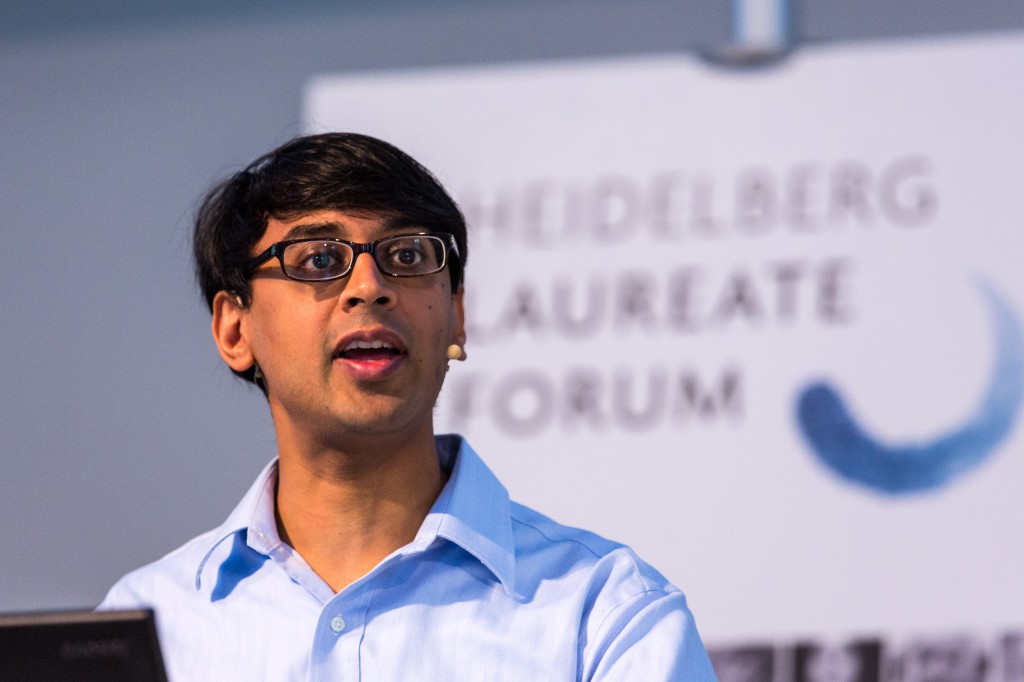Another Reason to Love the Number Seven
BLOG: Heidelberg Laureate Forum

The world’s favorite number is seven, at least if the result of a poll conducted by Alex Bellos is to be believed. Some people like it because it is prime, some because they have a lot of sevens in their birthdates. But Manjul Bhargava’s talk Thursday morning gave us another reason to love this number: exponential Diophantine equations.
Diophantine equations, named after the mathematician Diophantus of Alexandria, are equations relating several unknown quantities in which we are only concerned with solutions that are integers. Logically enough, exponential Diophantine equations are Diophantine equations in which one of the unknowns is an exponent.

In 1913, Indian mathematician Srinivasa Ramanujan conjectured that the exponential Diophantine equation 2n-7=x2 has a solution in which n and x are both integers only when n=3,4,5,7, and 15. In 1948, Norwegian mathematician Trygve Nagell proved it, although in response to his countryman Wilhelm Ljunggren, not Ramanujan.
2n-7=x2 seems like a rather arbitrary equation to study, and it turns out to be special. The equation 2n-D=x2 has at most two solutions for any (nonzero) D other than 7. There are two puzzling things about this result. First, why is seven special? Second, did Ramanujan know that seven was special? If not, why did he pick that equation out of all the possibilities? I haven’t been able to find an answer to that.
Bhargava told us about much more than this number theory nugget in his talk, but I like this nugget. When there’s one special case for a number, it seems like the number is usually 0 or 1. Maybe 2 every once in a while. But it seems like 7 rarely gets to be special. It usually has to settle for the people’s choice award instead.

